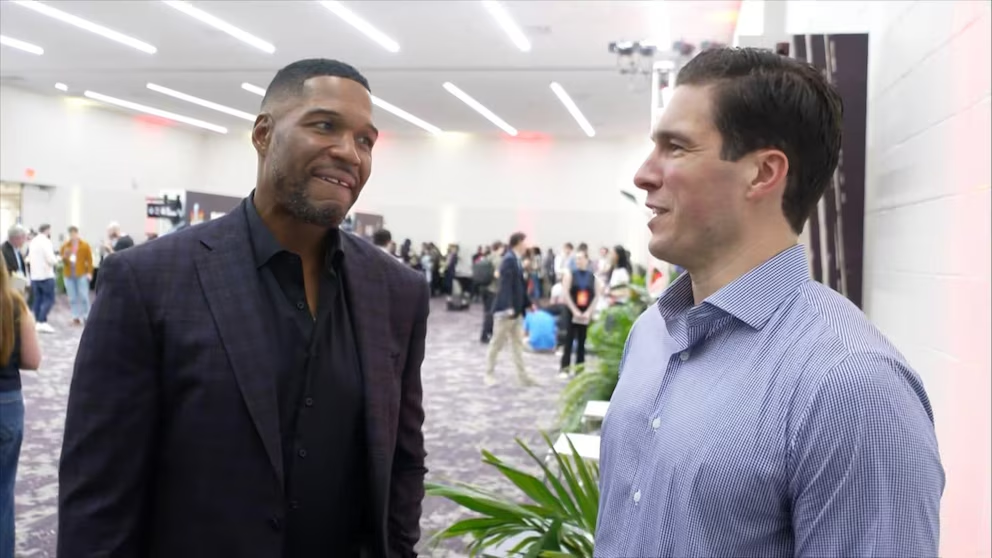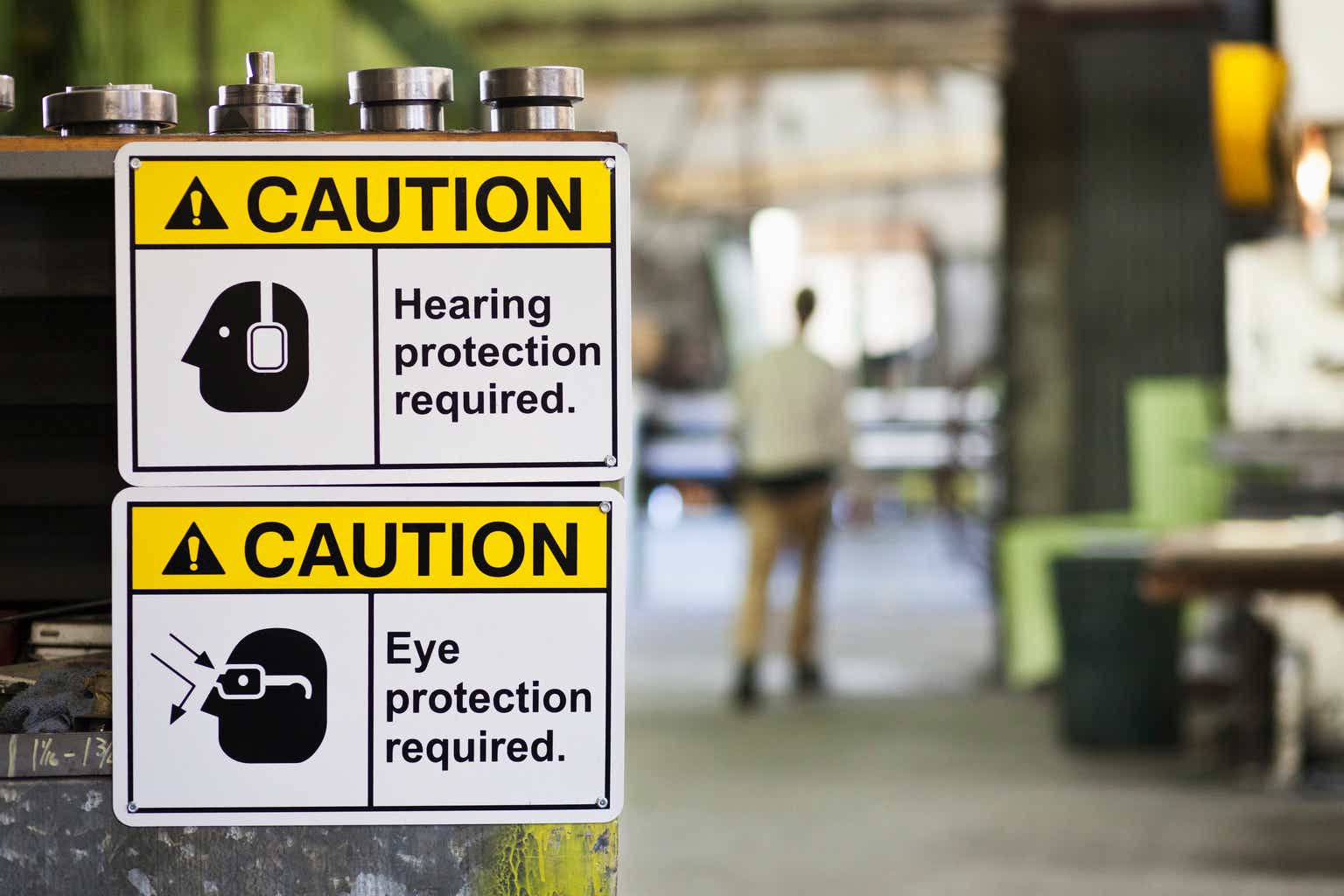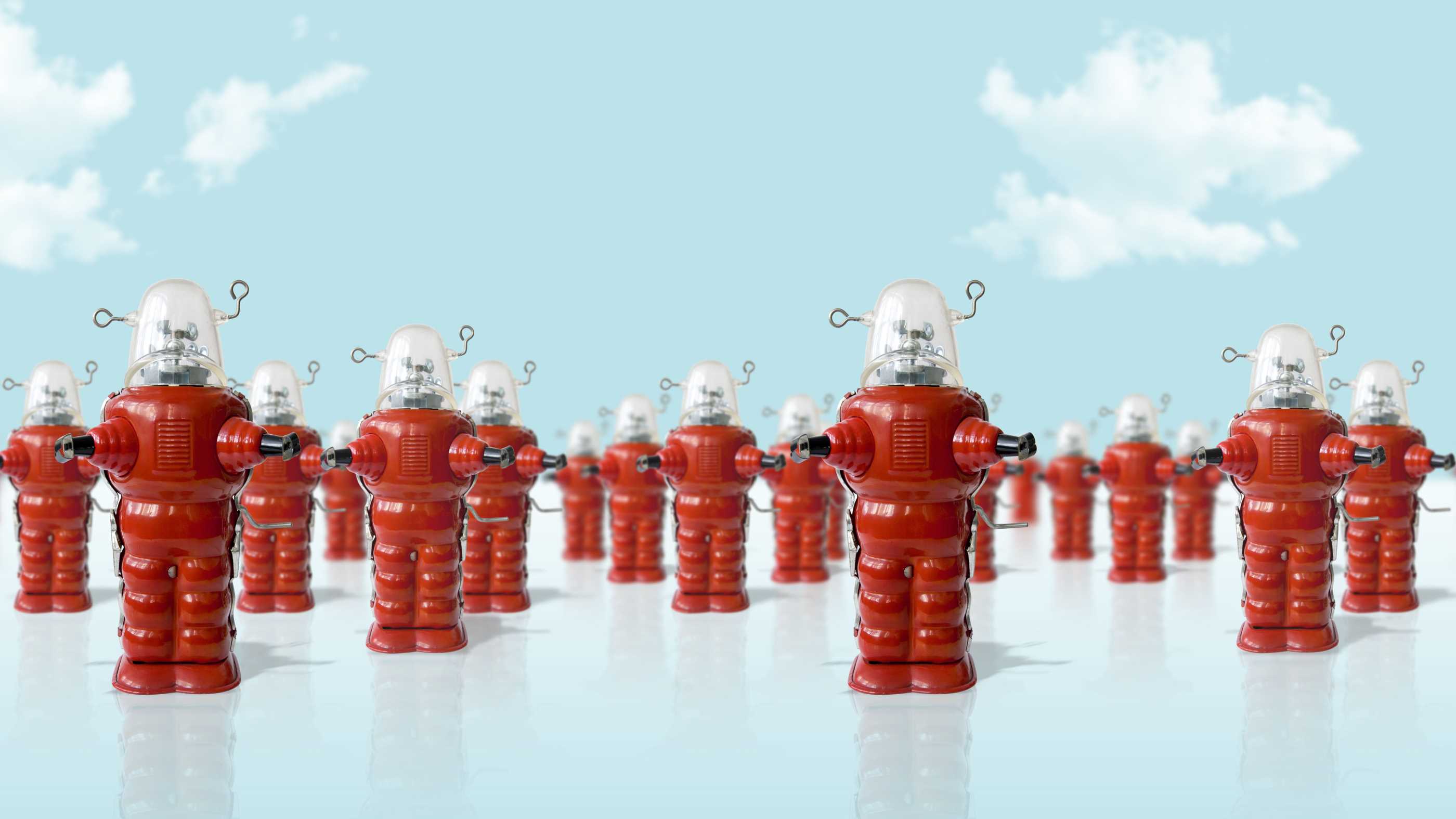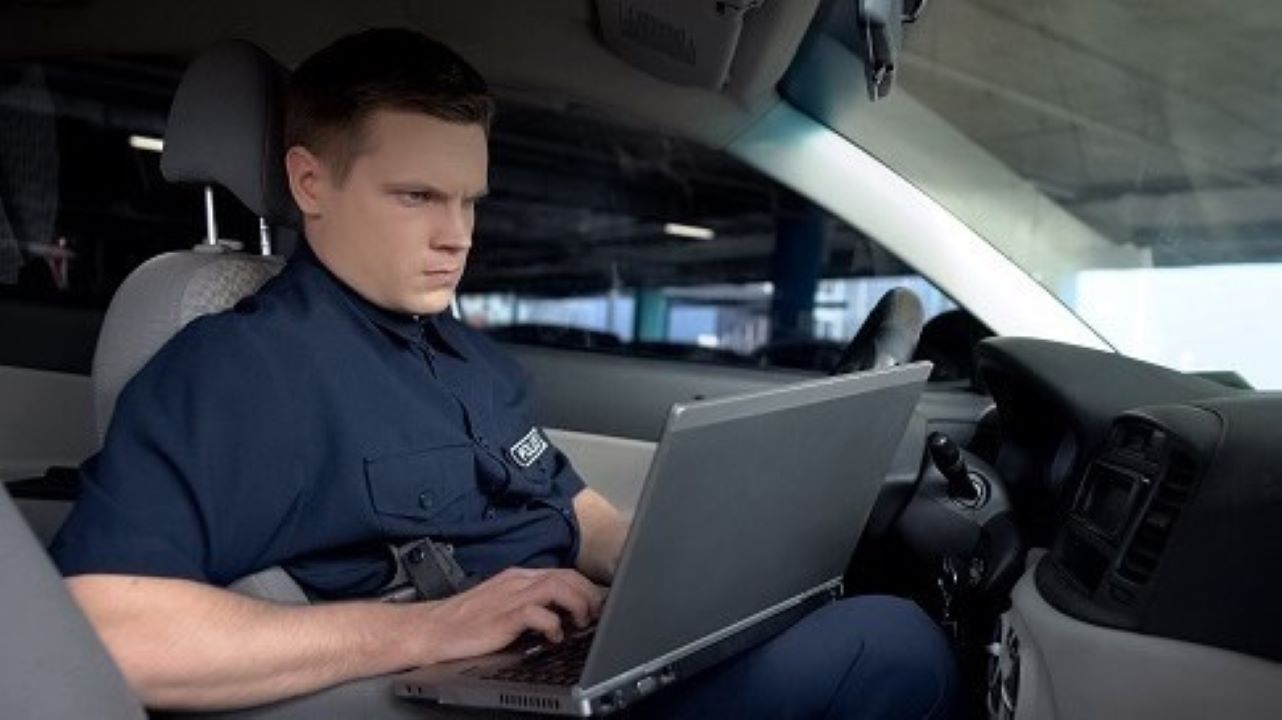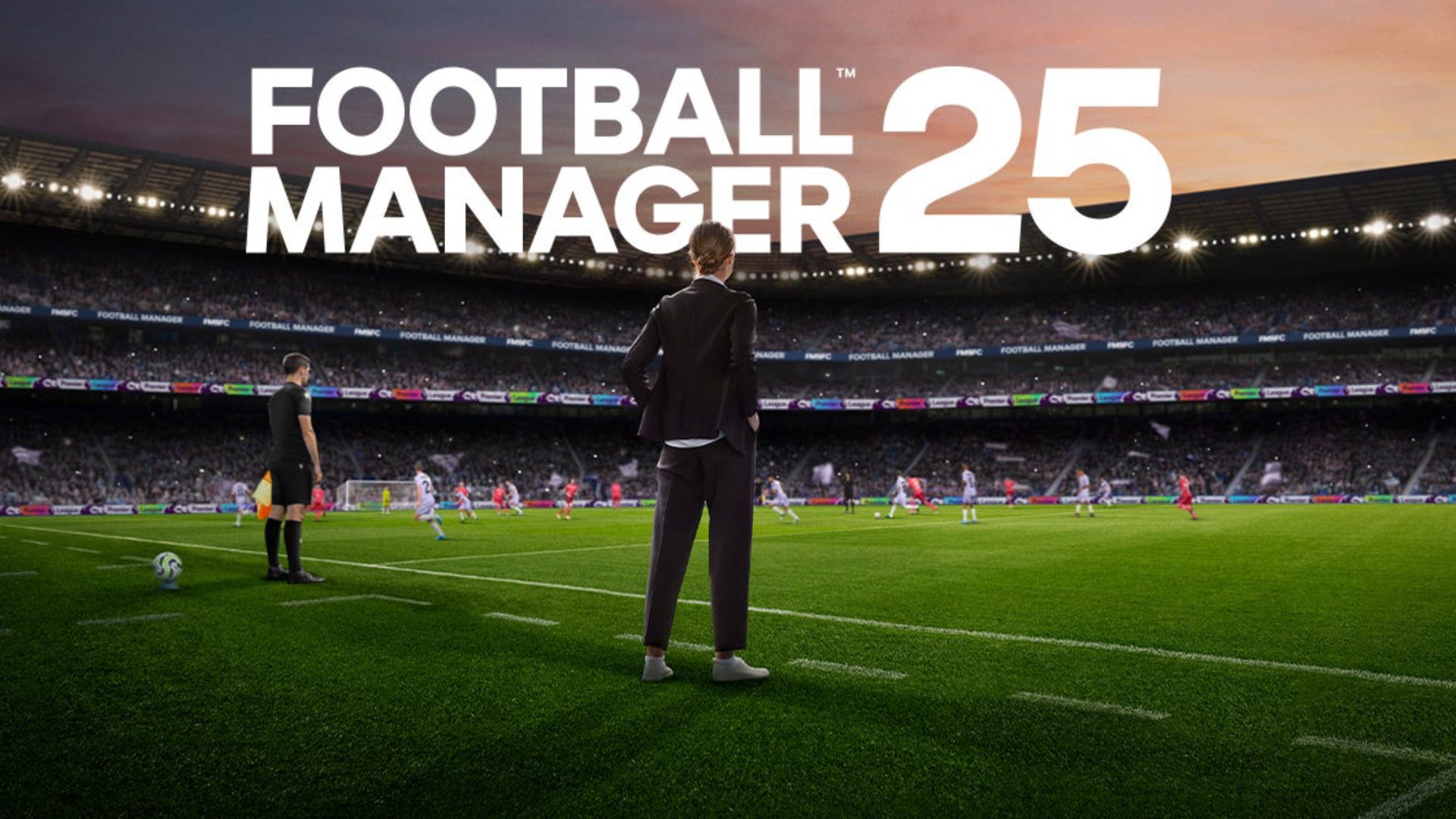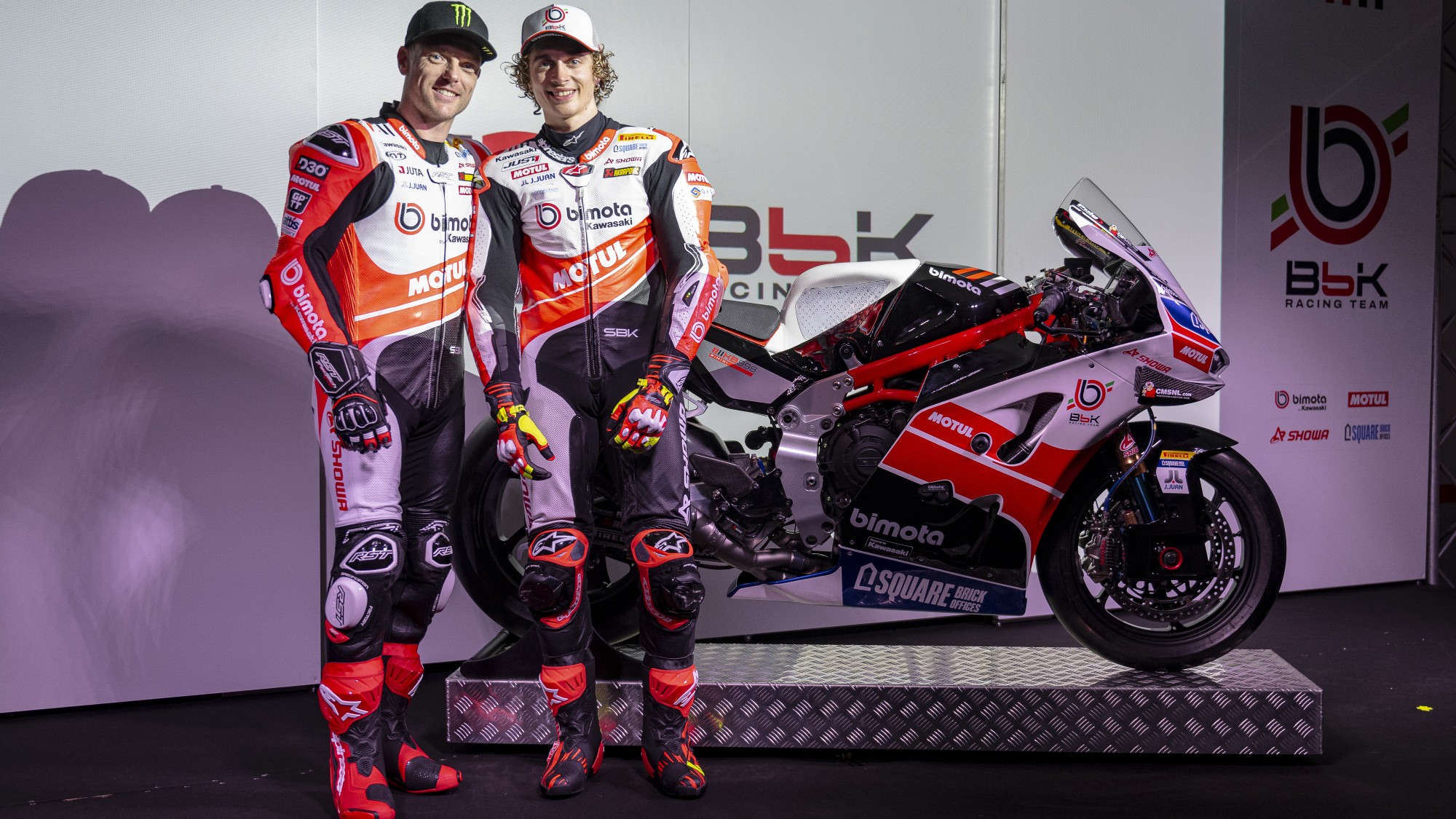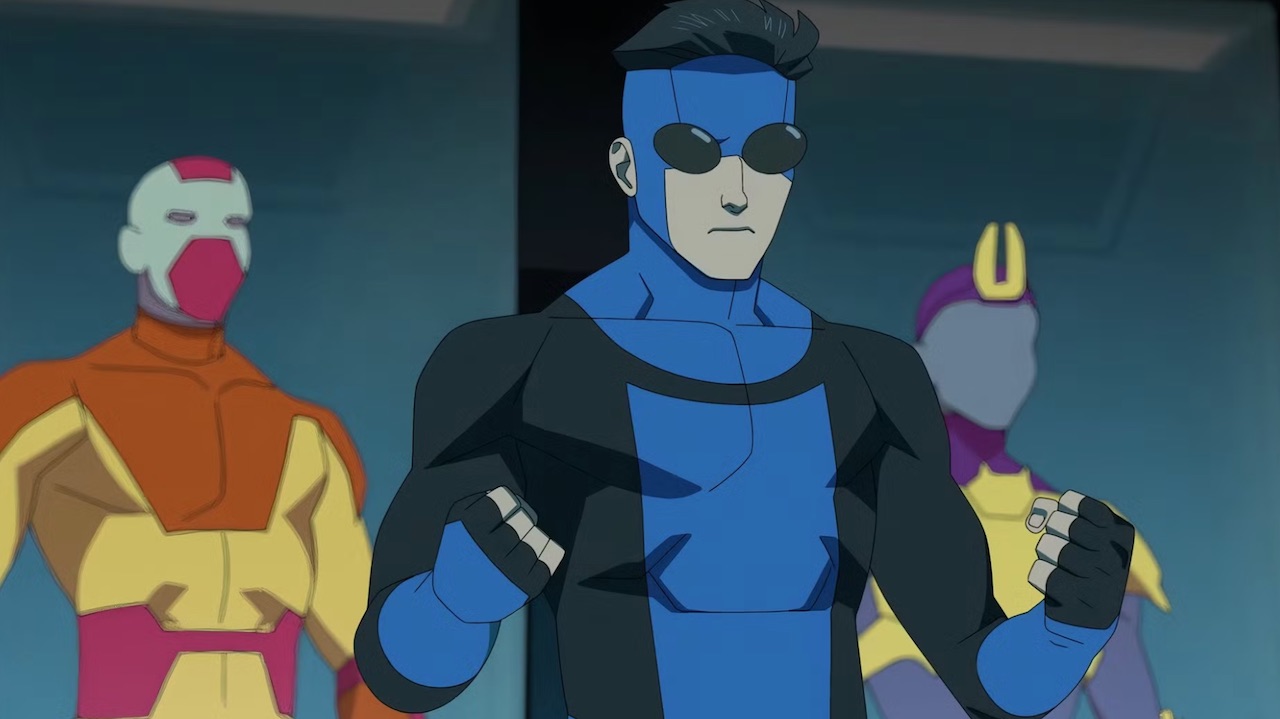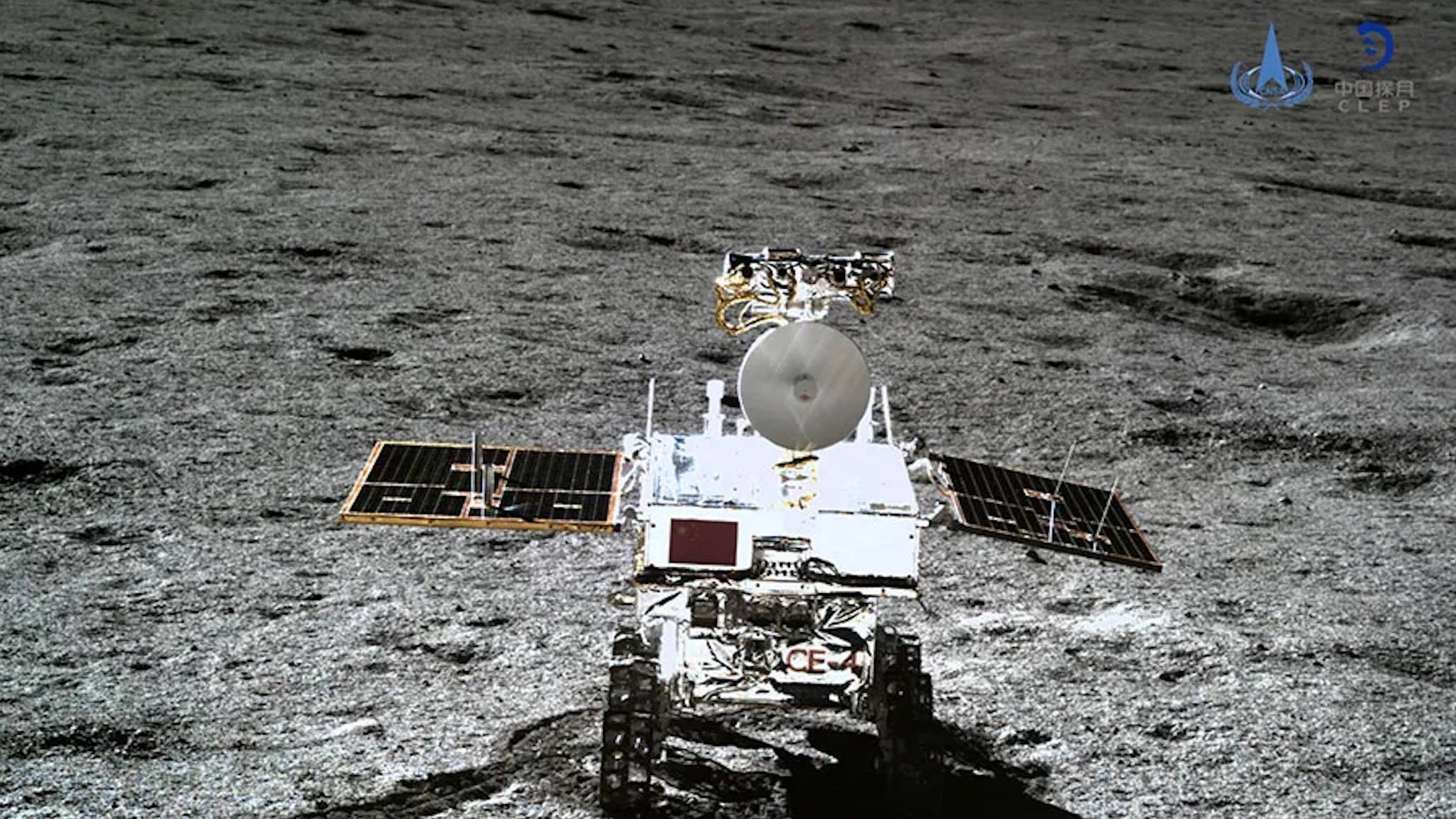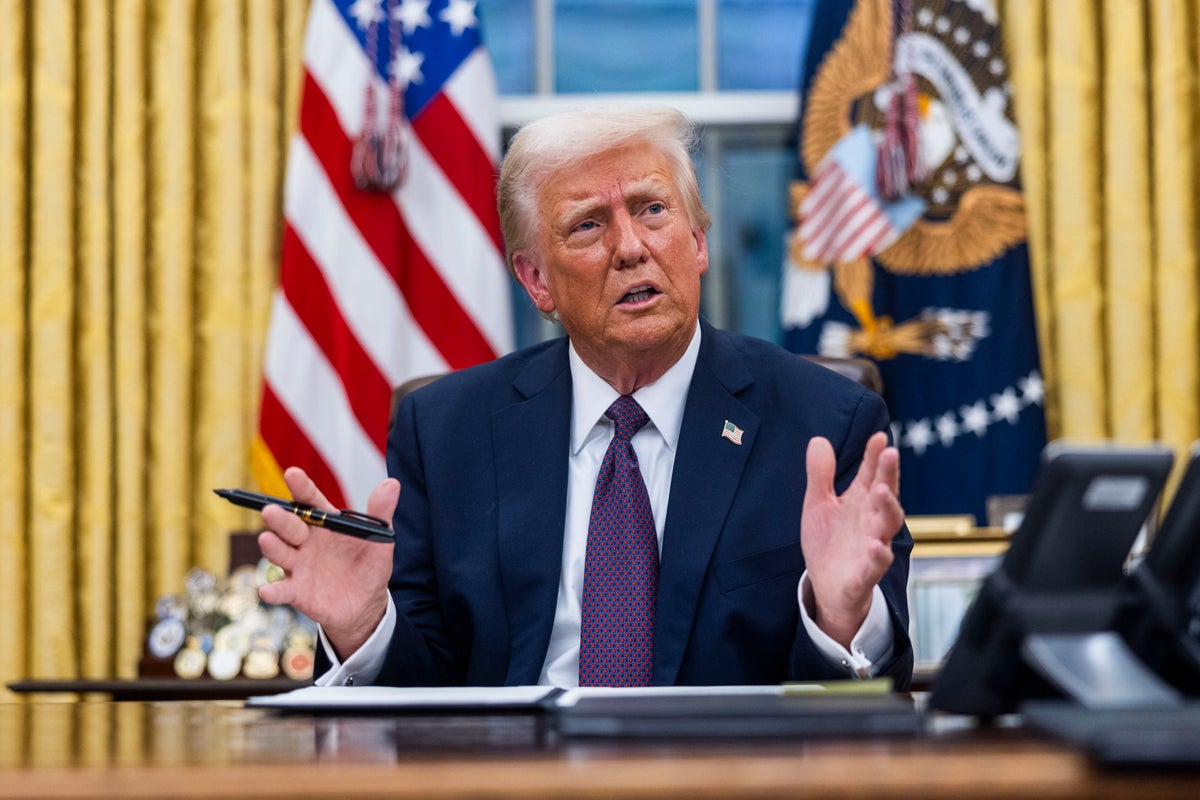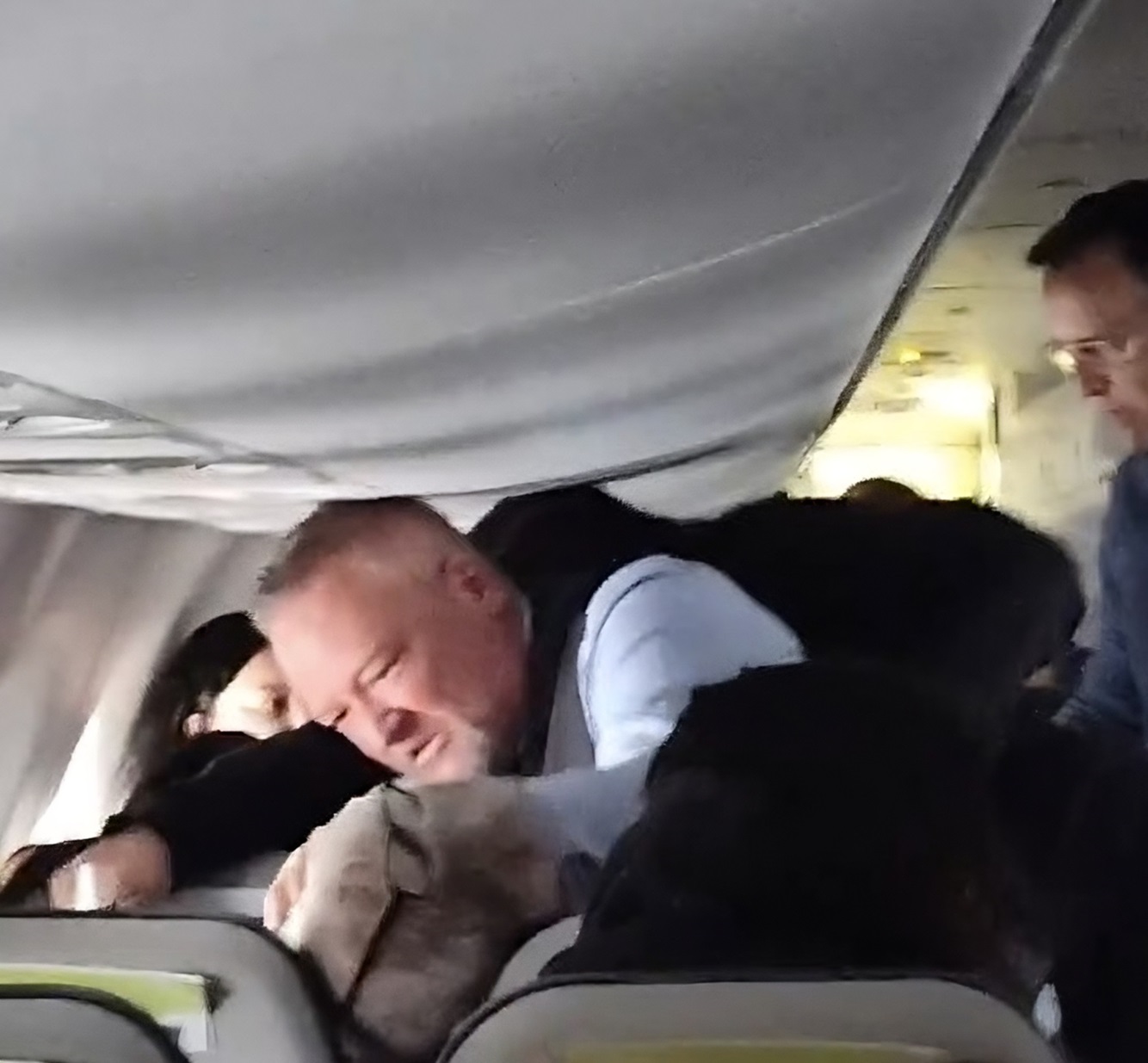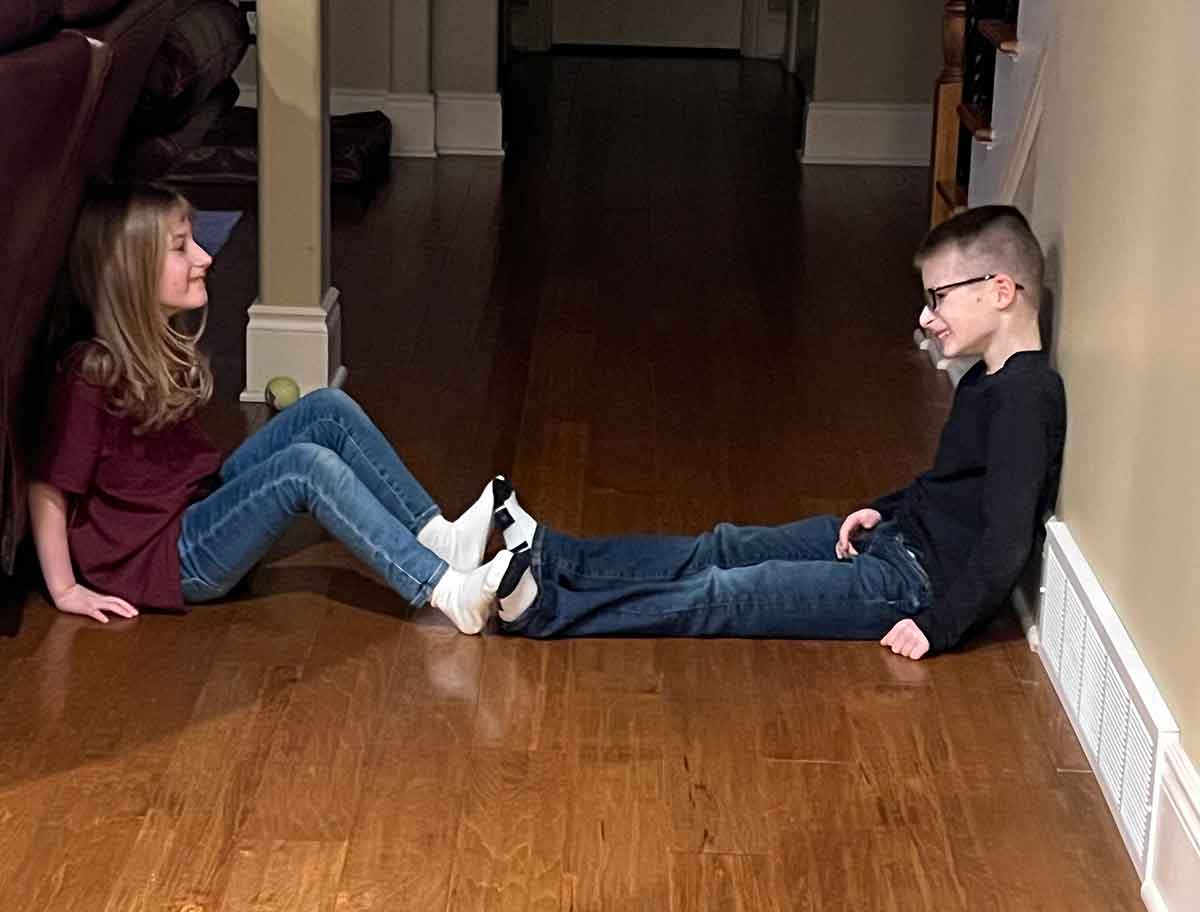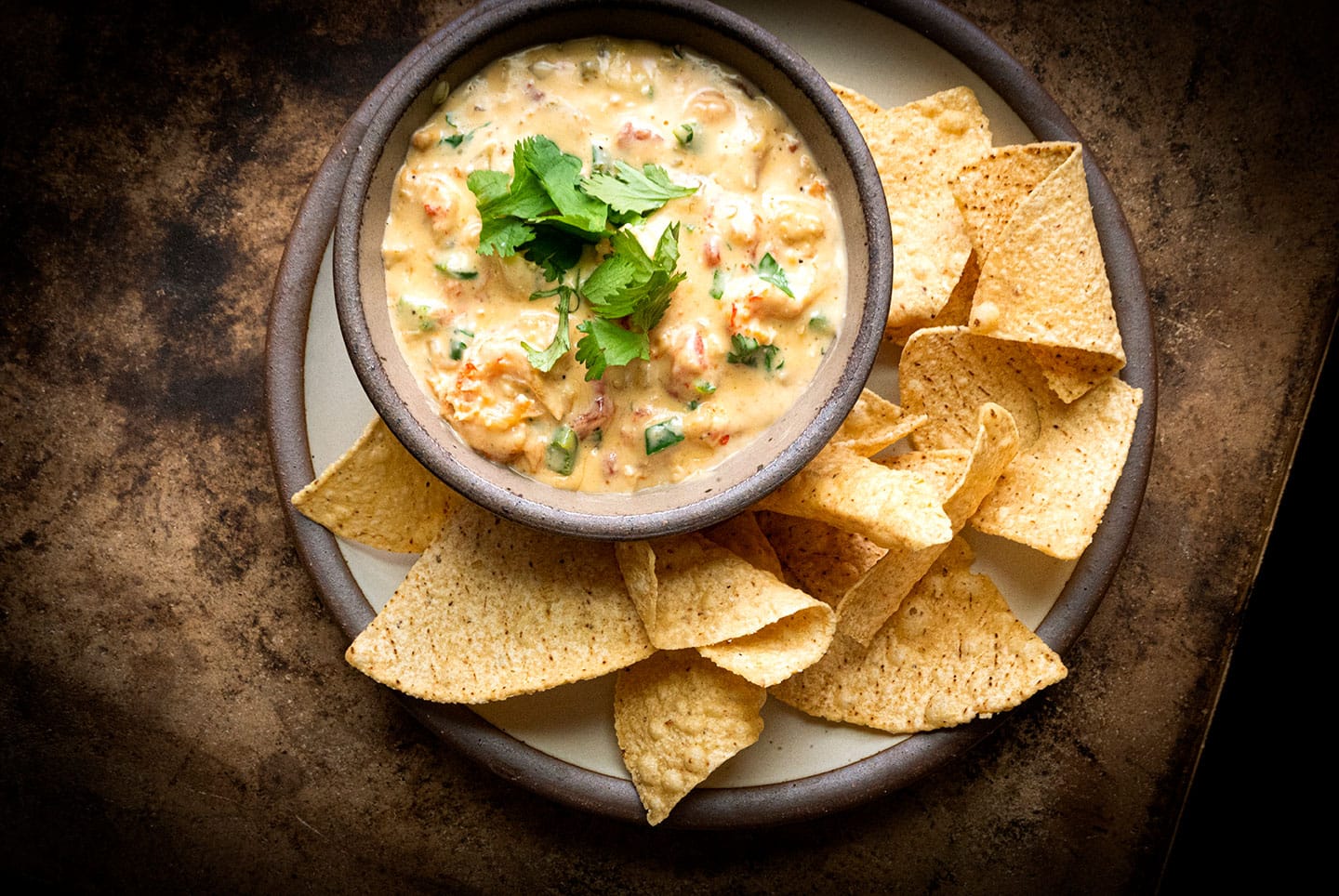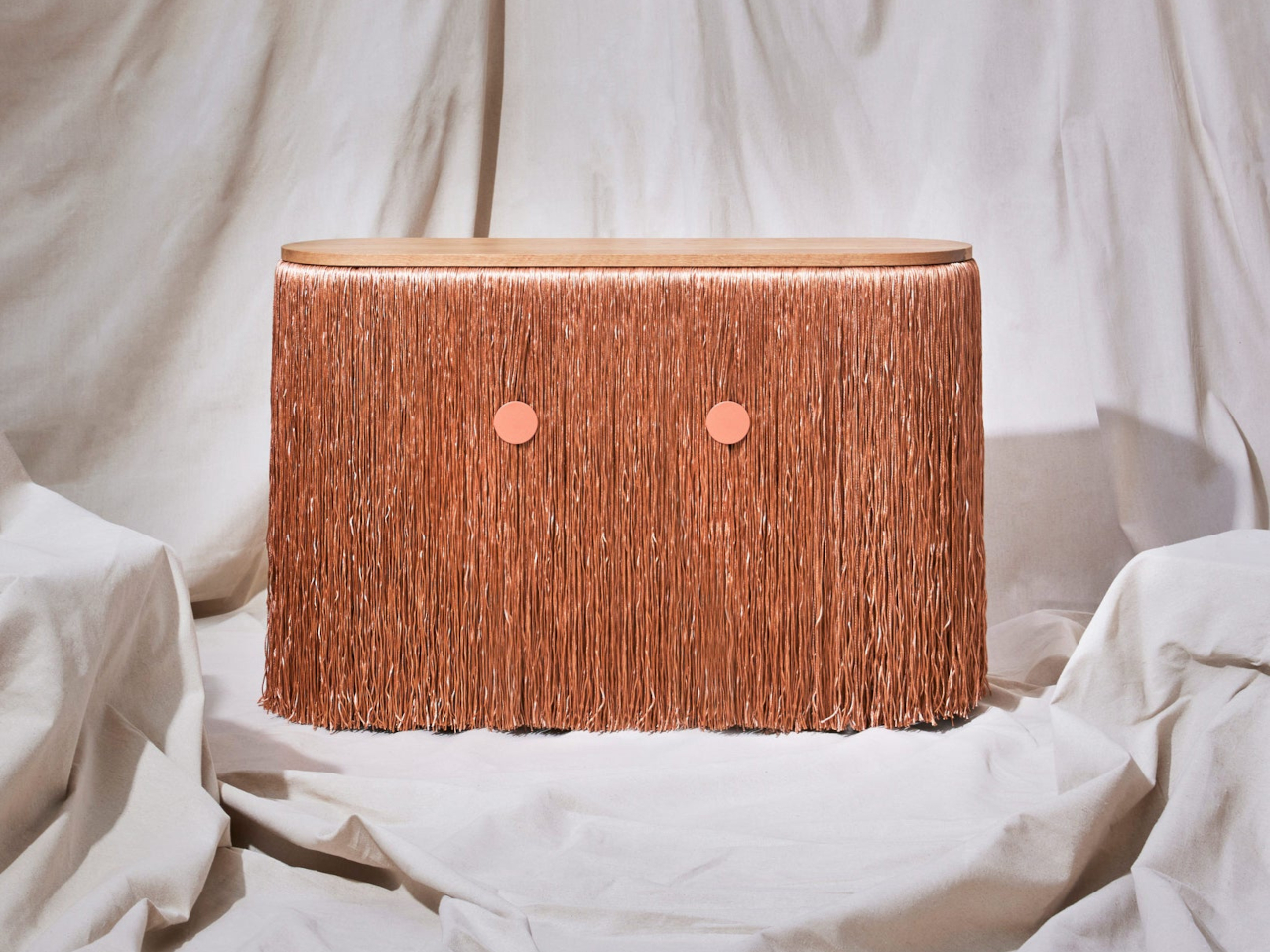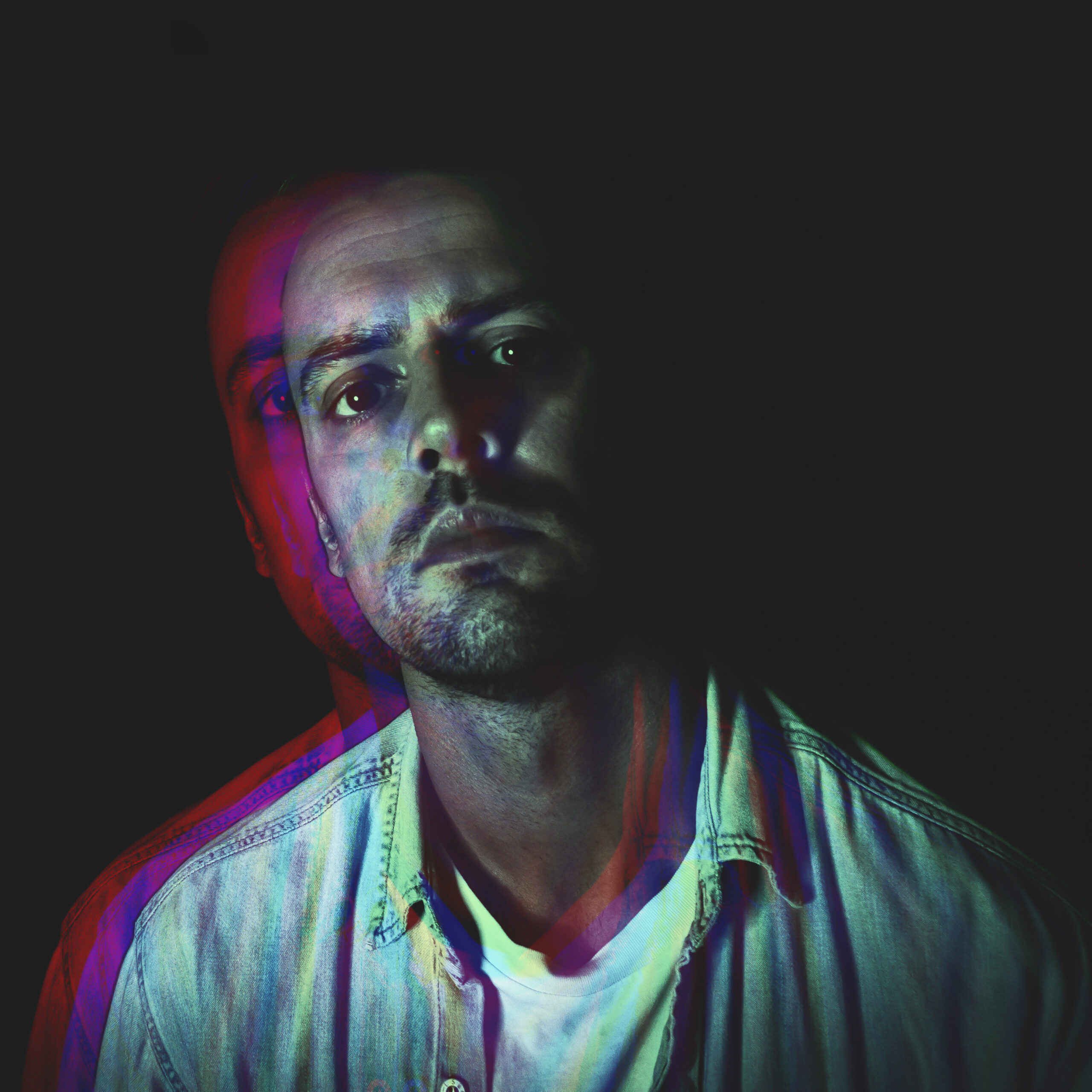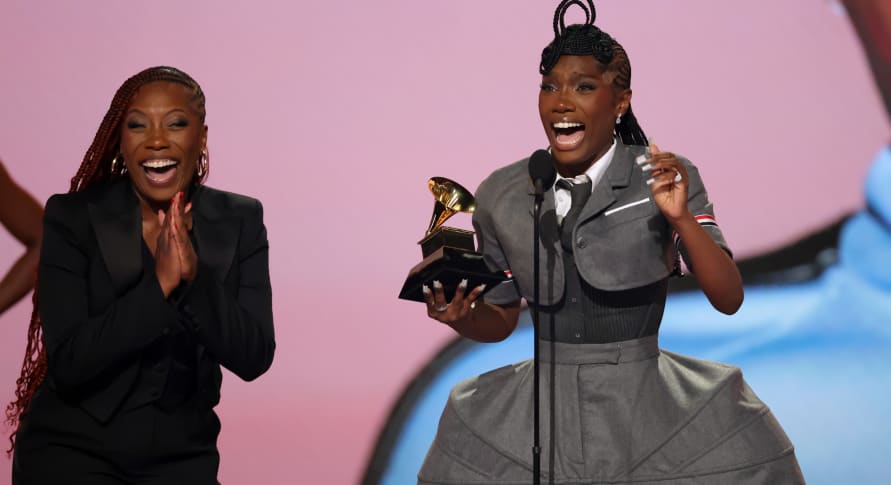Irish Guitar Band Inhaler is Reborn
At any point in music time, there is space for a floppy-haired, fresh-faced, four-piece guitar band in the bloom of its youth. Ireland’s Inhaler put their hand up for that slot over a decade ago when vocalist-guitarist Elijah (Eli) Hewson, guitarist Josh Jenkinson, bassist Rob Keating, and drummer Ryan McMahon joined forces during their school […]
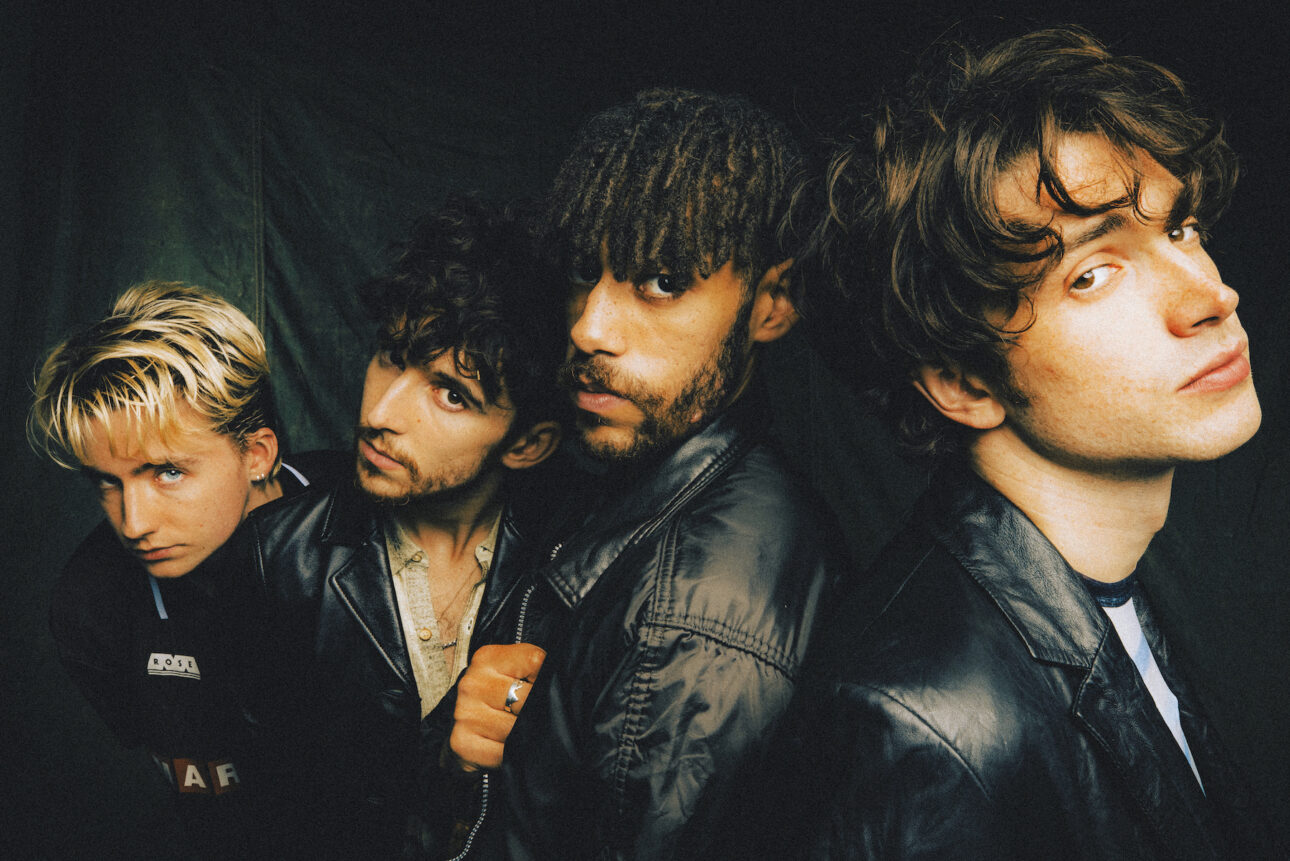
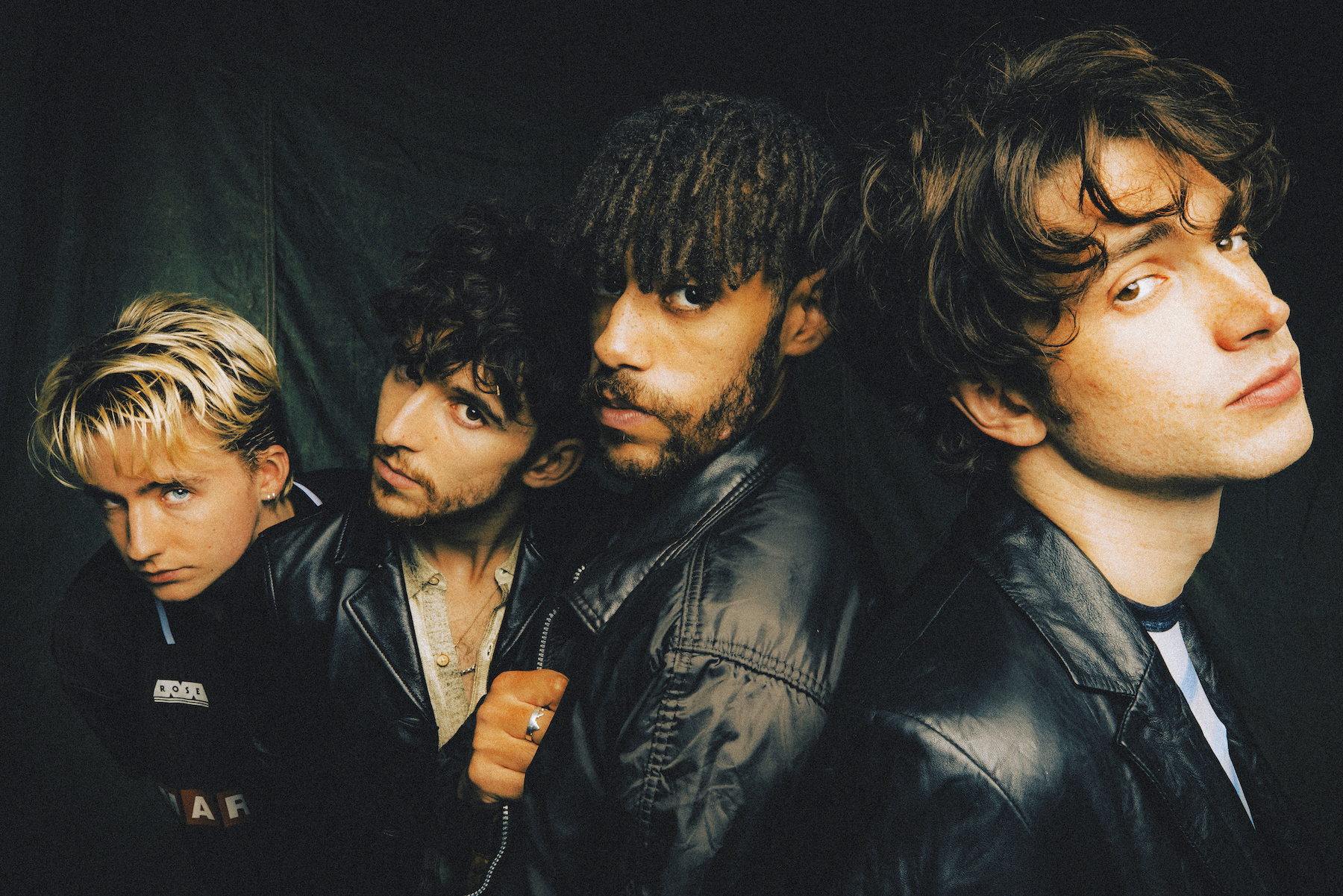
At any point in music time, there is space for a floppy-haired, fresh-faced, four-piece guitar band in the bloom of its youth. Ireland’s Inhaler put their hand up for that slot over a decade ago when vocalist-guitarist Elijah (Eli) Hewson, guitarist Josh Jenkinson, bassist Rob Keating, and drummer Ryan McMahon joined forces during their school days. They released their debut album, It Won’t Always Be Like This in 2021 and its follow-up, Cuts & Bruises, in 2023. Those LPs landed at No. 1 and No. 2 in the U.K.’s Official Albums Charts. Keeping up their brisk output clip, their third full-length, Open Wide, is released this week.
If Inhaler’s energized and unapologetic driving sounds conjure up images of U2’s Bono doing Britpop, that’s because Eli is Bono’s son—a fact that is mentioned offhandedly in the media, but one that is undeniably intriguing. Vocal similarities are where the line is drawn, however, with Inhaler having more in common with the sounds of ’90s U.K. guitar bands such as Oasis and the Stone Roses, while also drawing from New Order and Echo and the Bunnymen.
More from Spin:
- Kendrick Promises ‘Hard Raps, Good Beats’ At Super Bowl Halftime Show
- Scott Dudelson Lost 8,000 Vinyl Records (and His Home) in the L.A. Wildfires. Here’s How He’s Rebuilding
- Nick Cave, PJ Harvey, Jarvis Cocker Enrich ‘Los Angeles Rising’
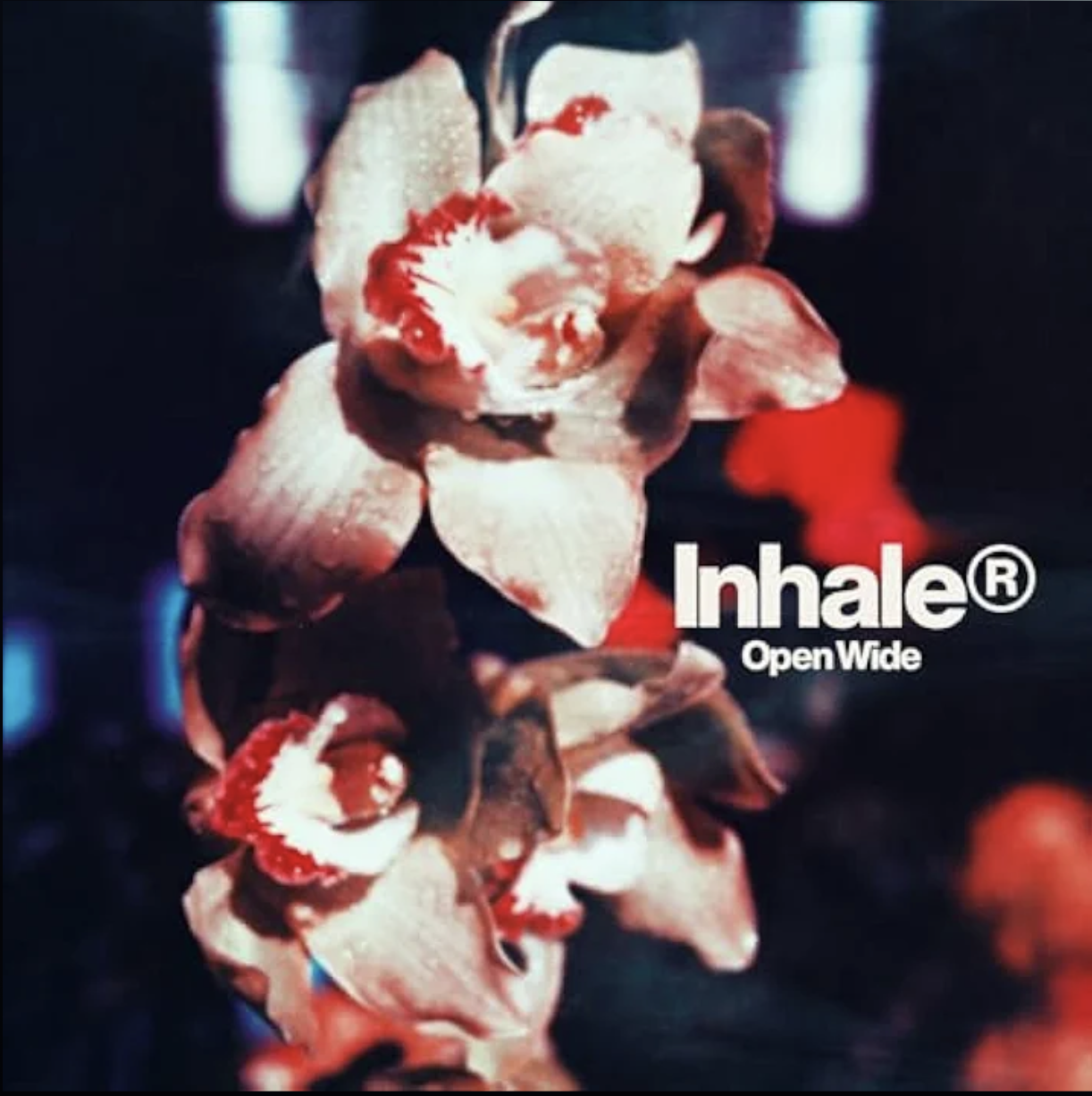
Open Wide marks new territory for Inhaler, both in its creation and its recording approach. The first two albums were produced under the direction of Britpop odd-jobber Antony Genn (Pulp, Robbie Williams). It Won’t Always Be Like This was created during the pandemic while Cuts & Bruises was written on the road. Open Wide, on the other hand, is a more considered album, shepherded by Tom Hull, a.k.a. Kid Harpoon, who is perhaps best known for his chart-topping and award-winning work with Harry Styles.
While Eli’s nepo-baby status garnered Inhaler early support slots with the likes of dad’s friend, Noel Gallagher’s High Flying Birds, the group has more than held their own, earning approval and card-carrying fans that have nothing to do with the olds. All signs point to that No. 1 chart position for Open Wide, at least in the group’s native Ireland and the U.K. But American audiences, who don’t get enough facetime with Inhaler, are not far behind. The group was already filling 1,000- to 3,000-seaters on its last North American tour in fall of 2024. “You can’t compare the U.S. crowds and shows to anywhere else,” says Ryan. “Every time we go back there, it’s like discovering it for the first time again.”
The connection Inhaler fans make, not just with the group, but with each other, is a global phenomenon. “We feel immense towards them for the commitment they have to us,” Ryan states. “They work together in a great way to make our shows feel like a very joyful place to be in.”
Ahead of Open Wide’s release, for which Inhaler will be touring the U.S. this spring. Eli and Ryan speak to SPIN about the personal and professional bullet train that is propelling their 20s.
What brought you to Kid Harpoon as a producer?
Eli Hewson: We just wanted to sell out [laughs]. No. We’d been with the same producer for the first two albums and he ascended the producer role and now helps manage the band. He’s kind of a father to us, in a way. We didn’t want to do the same thing again. We’d found such a rhythm in working with him in London that we wanted to get out of that predictable rhythm.
To be honest, we didn’t know that Tom was going to be the guy. We had a few speed dates with producers. Some of them went well. Some of them, not so well. With Tom, we hit it off immediately. He made us laugh and we really loved him. And we love Harry Styles’ last album, Harry’s House. It was quite a fresh pop sound and had guitars in it, so it attracted us.
That sounds like the elevator pitch for Inhaler: fresh pop sound with guitars in it. Did you get the unpredictability you were looking for?
Ryan McMahon: It was naturally going to feel unpredictable for us because it was the first time we worked with another person. I’m not sure what we expected. We just fell into such a great cycle of feeling creative with him, and it felt like he helped us to wipe our slate completely clean. We had spent six months before we went into the studio writing as much music as possible. We sent him loads of demos. He made a list of the ones he wanted to work on and the ones he didn’t. The 13 songs on the album are the only ones we brought into the studio, so everything made the cut. He was so invested from the start, making sure that each one on the album got as much attention and love and care as the rest, which was something we really appreciated in his way of working.
EH: The first two albums, we were very eager to get out and play, and the albums felt more like a compilation of singles. With this one, Tom was very focused on not chasing a single. He thinks that’s actually quite counterproductive. He was right. It was: let’s make the album we want to make, and then the managers and the label can decide what the single is. It made for a really interesting recording process. It was very natural and organic.
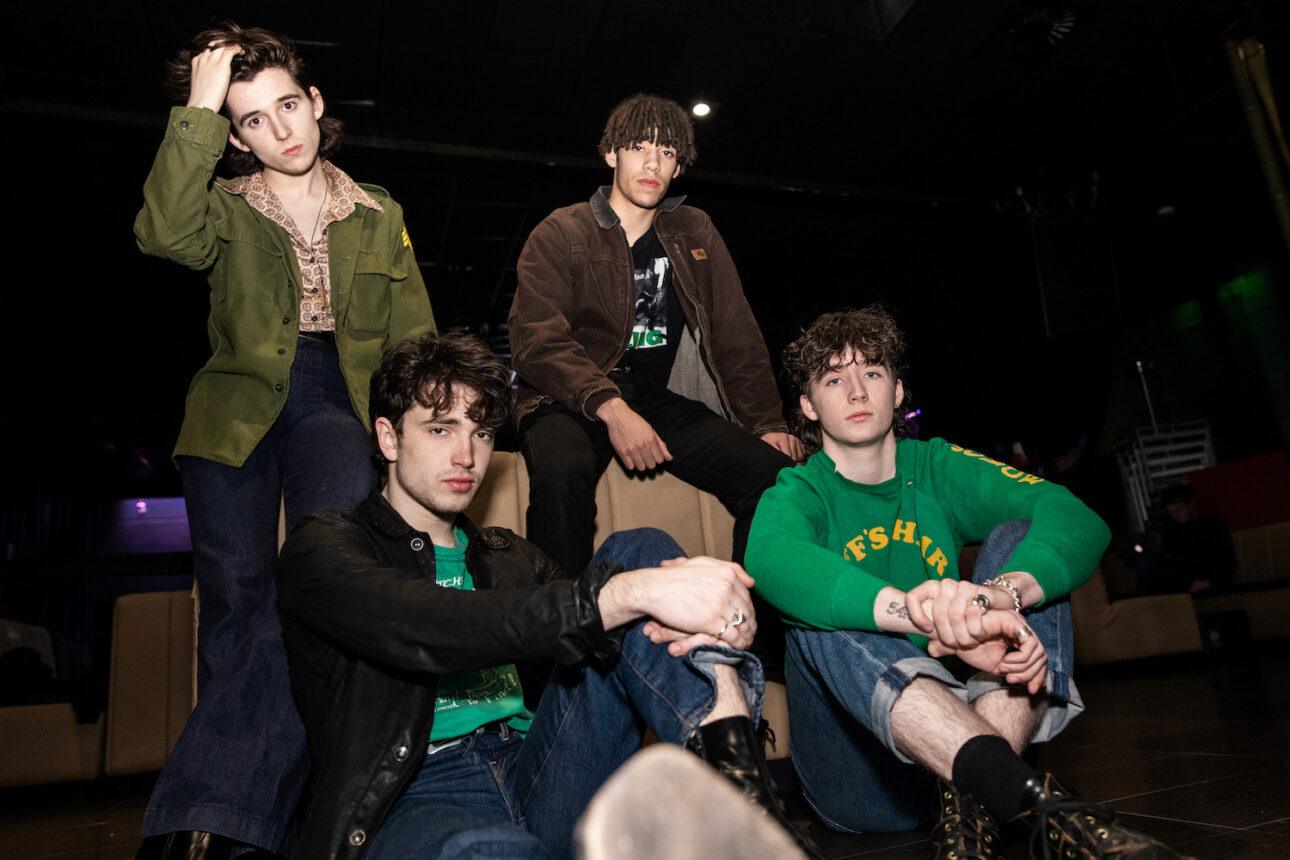
There is huge growth that happens on a personal level from your teens into your early 20s. Do you feel that is reflected on the albums?
RM: In hindsight, the first two albums, compared to where we are now, almost feel like they came out at the same time. We recorded the first album in bizarre circumstances when there was a pandemic and then as soon as we were able to tour again, we were never home, and we would be recording the second album any moment we had off the road. It was like that for two and a half years. This album, in a weird sense, feels like we’ve done our first-ever record, in the traditional sense of how you hear of people making albums. That has played a huge part in the attraction we have to the body of work and the personal connection we have to each song. We were given the luxury of time to sit with all of them for a long time. Everything about this record feels new. It was a new producer, a new studio, new ways of writing together, the first time we all sat down and talked about lyrics. All of that stems from the growth we had as individuals without ever realizing that we were, in fact, growing up.
Were the lyrics a solo thing before?
EH: No, Ryan would help me if I was stuck on something. There was definitely a big wave of support from the lads. On this one, the thing that was different was discussing the meanings a bit more, and me being a bit more honest, which is a hard thing to do. It’s like letting somebody into your messy bedroom.
RM: Songs serve as a way of telling people things you don’t want to tell them in a conversation.
What helped you get to more honesty?
EHi: A multitude of different things. We felt we’d stepped out on our own again. Our last producer was very much in your face about, “You need to finish this. We’ve got a fucking deadline to hit.” This one, Tom wasn’t ringing us up at 1 o’clock in the morning talking about what we were going to do the next day. We felt like our fate was in our hands, more so than it ever has been. That forces you into a space where you have to go, “Maybe I do need a bit of help here. I need to reach out.” Sometimes what you need the most is right under your nose the whole time. Maybe out of stubbornness you don’t want to admit that you’re stuck with a song or you’re struggling to finish it. This time, we were able to be honest with each other. A big guide on this album for us was honesty with ourselves. Taking the veil off a little bit, not trying to hide behind a lot of sounds. Everything on the album has its place and it’s not fighting for dominance.
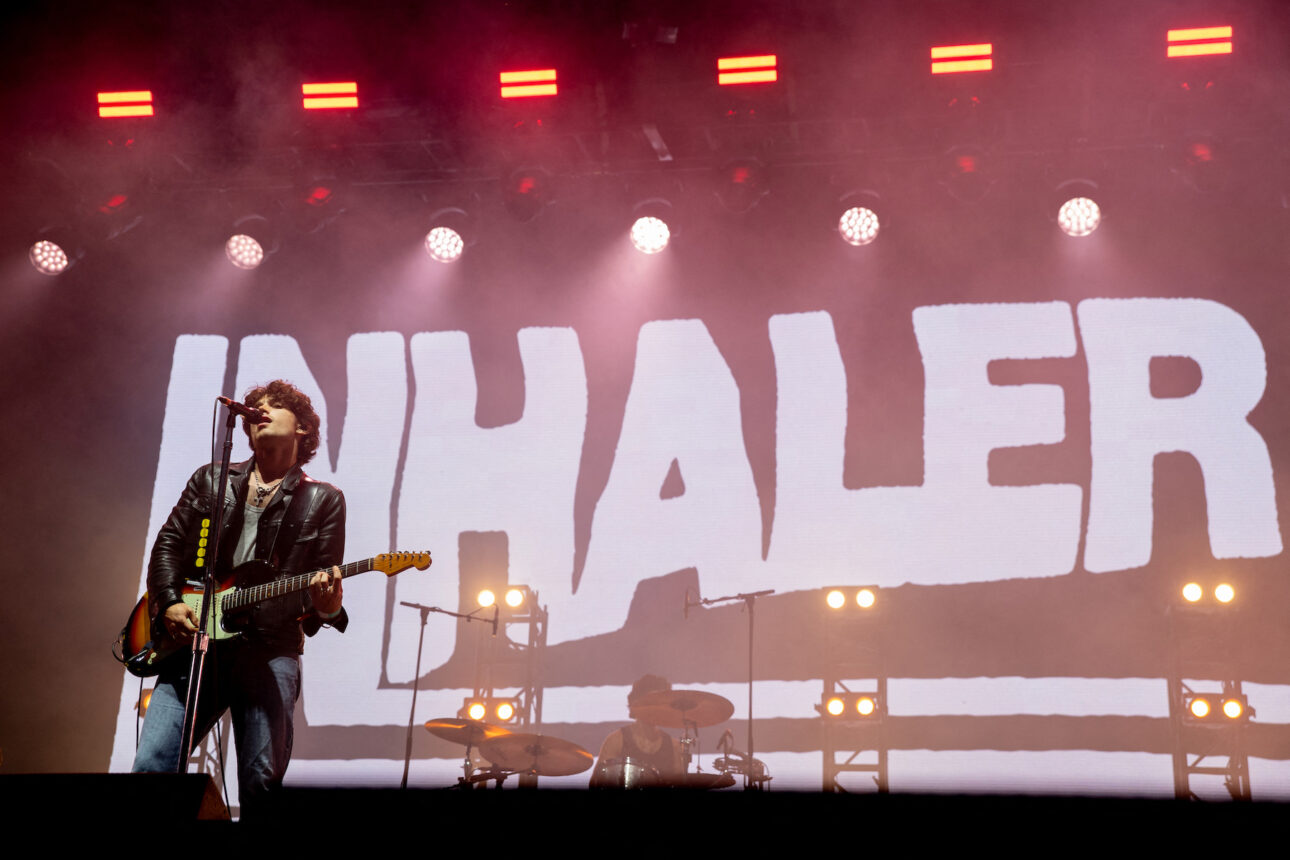
What are some experiences you’ve had that you don’t want to repeat, or conversely, would like to see happen again, in recording and otherwise?
RM: Not doing 50 drum takes for one song. Having lots of time off is something we will strive for with every album going forward. Having the songs pretty much close to finished and structured before going in was a huge thing. We would always write on the road and then try and figure it out when we got into the studio next. Sometimes we’d leave, not really getting anywhere. Making sure we have a few months before actually going in is a huge benefit.
EH: Tom was very adamant on the demos. We went in with a lot of stuff that we felt was unfinished, and I’d be like, “Oh, don’t listen to that. That’s not done. We’re going to fix that.” And he’d be like, “I think you’ve captured what it is, and you should go with whatever your first take was on that. Don’t overthink it.” Overthinking was illegal on this album. We tried not to do it. We tried to go very much with instinct. That was a lot to do with Tom and his approach. If it’s not working, if you’re overthinking it too much, then throw it out. That was refreshing. It allowed us to be more free in the studio and less self-conscious, which is a really hard thing to achieve in the studio, because there’s so many things going around in your head. “How’s this going to be perceived? Does this block us off from doing anything in the future? Am I going to want to hear these words in 10 years? If the song does well, we’ll be singing it for the rest of our lives.” He’s just very much like “We’re capturing a moment. Let the moment be what it is. Don’t try and think too far ahead.” That was really healthy.
It sounds like you’ve had a lot of mentors. Has your father given you any advice, Eli, or does he stay out of it?
EH: I’d love to get a bit more advice, to be honest. The best advice I’ve gotten from him has been the usual kind of advice you would get from a parent, which is, “Don’t let it pass you by. This is a moment, you’re in it, and you have to throw yourself at it.” There definitely is an expectation of failure from people, and an expectation that we would be handed things. While there have been advantages, for sure, we’re not denying that, what it’s made us do is work really hard because we didn’t want to be perceived as just walking into it. Even things like getting big support slots early on, we were a bit hesitant going for it because there would be that kind of, “Oh well, you only got it because he’s friends with him and whatever.” On the other hand, it’d be more ridiculous to not take this opportunity. We’re still learning how to navigate it. It’s a unique position to be in.
This is the only thing we want to do, and nothing is going to stop us from doing it.
We wanted people to know that we’re hungry for it. That gave us a strong work ethic from the beginning. It’s given us a real drive.
To see our running list of the top 100 greatest rock stars of all time, click here.

